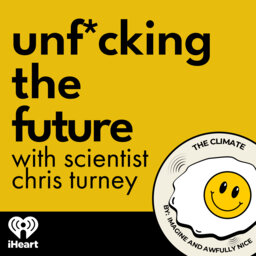Suing Your Government with Our Children's Trust
In a landmark legal victory, young climate activists, represented by Our Children's Trust, won the first-ever constitutional climate trial in the U.S.. In Montana v. Held, the court declared the state's laws promoting fossil fuels were unconstitutional. One of the plaintiffs, Claire Vlases, and a lawyer who fought the case join Chris to discuss the landmark legal victory and the need for systemic solutions to address climate change.
Show notes from Chris:
- To support or get involved, visit ourchildrenstrust.org.
- Joana Setzer and Catherine Higham at the London School of Economics produce a fabulous report each year on “Global trends in climate change litigation." The 2023 snapshot can be found here.
- Legal cases are driving changes around the world. In 2017, 23-year-old student Mark Leigh took his Australian superannuation (pension) fund to courtover their lack of transparency on how they were investing and protecting his money from climate risk.
In 1 playlist(s)
Unf*cking the Future
Unfucking the Future takes us on an environmental journey with our knowledgeable guide, scientist Ch…Social links
Follow podcast
Recent clips

Blue Carbon with Sanjayan
32:43

Greening Cities with Kotchakorn Voraakhom
27:52

Wildfires with Glynis Humphrey
29:35
 Unf*cking the Future
Unf*cking the Future